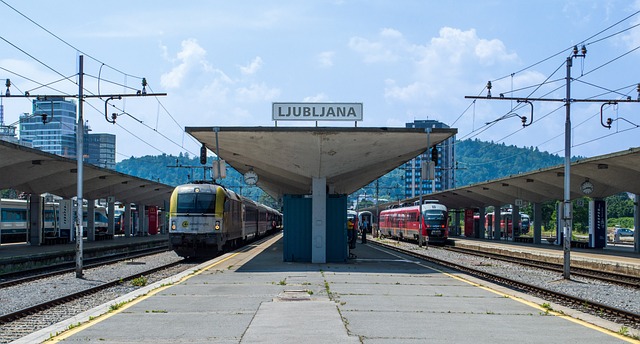
Public tendering rules in Slovenia: how to submit a tender offer
Every year public authorities in the EU spend a substantial part of public investment on public procurement. This amounts to more than 1.9 trillion EUR or 14% of GDP, in Slovenia alone 5,8 billion EUR or 12,6% of GDP. In many sectors public authorities are even the principal buyers and, on that account, public procurement has a significant impact on the economic growth of private companies. Both, domestic and foreign. In the following, we therefore provide important information on Slovenian legislation and advice that can help foreign companies successfully submit their tender offers.
Slovenia’s public procurement legislation is harmonized with EU legislation (Directive 2014/24/ES, Directive 2014/25/ES etc.). The public procurement procedure in Slovenia is regulated by The Public Procurement Act (ZJN-3), which defines permissible procedures (e.g. the low-value procedure, open procedure, restricted procedure, competitive dialogue, etc.), purchasing technics (framework agreement, DPS etc.), awarding process and rules for concluding the contracts for purchase of supplies of goods, services and construction work. The procedure for revision of a public procurement procedures (in publication and awarding phase) is regulated by the Legal protection in the Public Procedure Act (ZPVPJN).
Whenever a ministry or municipality, for example, wants to buy paper or office equipment or to reconstruct a public road, it must observe these rules. On the other hand, the rules are also binding on all economic operators that are applying for public tenders. The prime aim of procurement law in Slovenia, and in general, is to make economic and careful use of budget funding to cover the procurement needs of the public sector.
- Main principles of Public Procurement
Public procurement in Slovenia pursues the main principles of economy efficiency, transparency, proportionality, free competition and equal treatment of the tenderers. All public contracts must also comply with the applicable environmental, social and labor law.
As for the free movement of goods, services and freedom established in the EU, the national law prescribes the equal treatment of domestic and foreign tenderers. Therefore, national legislation forbids any sort or form of discrimination. Actions by a contracting authority which would discriminate against foreign tenderers are prohibited.
- Thresholds of Public Procurement
Public procurement procedures in Slovenia are only mandatory for purchases whose estimated value exceeds certain thresholds. Thresholds in general procurement are:
- 40.000 EUR for goods, services and design contests,
- 80.000 EUR for construction work and
- 750.000 EUR for certain social and other specific services;
and in the utilities sector: - 50.000 EUR for goods, services and design contests,
- 100.000 EUR for construction work and
- 1.000.000 EUR for certain social and other specific services.
For procurements with the estimated value under the thresholds, the contracting authorities are not obliged to use public procurement procedures, therefor public purchases below the threshold are not publicly published. However, contracting authorities must follow the general principles of the procurement law and keep records of such procurements.
- Publication of public tender and electronic submission of a tender offer
All public tenders whose estimated value exceeds the thresholds set out in the Public Procurement Act must be published on the Slovenian public procurement portal (https://www.enarocanje.si/, hereinafter referred to as PJN). If the estimated value exceeds thresholds set by EU regulation, then publication must also be published at TED (www.ted.europa.eu). All the necessary information regarding the public procurement is published on these two websites, without any costs for economic operators.
The public procurement portal PJN allows economic operators to obtain additional information on the tender topic. Through the PJN, economic operators can set additional questions to contracting authorities, to which they are obliged to respond within a specified period (at least 6 days before offer submission deadline). In accordance with Article 67 of the Public Procurement Act, the contracting authority may also amend the tender documents. If that is the case, all amends are published in the form of appendices to tender documentation and available at PJN. Each appendix to tender documents becomes a part of tender documentation and must be taken into account. As well as all questions and answers published on PJN.
The publication of the tender at PJN is made only in Slovenian language. Also, the tendering documentation is in most cases prepared only in Slovenian. Certain parts of the tender offer, such as technical documentation, may be submitted in English. Of course, if so, specified in the tender documentation. Occasionally contracting authorities may prepare tendering documentation in foreign language as well, however, it is more the exception than the rule.
From 2018, electronic bidding is mandatory in Slovenia. On that account all economic operators must submit their tender offers electronically. There are three different electronic bidding systems currently available in Slovenia. Through which you will have to submit your tender offer depends on the contracting authority itself. In most diameters, this will be governmental platform eJN (https://ejn.gov.si/). Yet, it can also be ePonudbe (https://eponudbe.si/) or S-Procurement (www.s-procurement.si).
All the above electronic systems are free of charge for economic operators and available at least in English language. Submission procedure through these systems is not demanding, however, it does require some practice and time investment, as well as pre-registration, which is often more demanding and time-consuming than submission of tender offer itself. So, if you are using those electronic tendering platforms for the first time, we warmly advise you to take a little more time for the preparation.
- Participation of the admissible tender offer and selection criteria
As mentioned, both domestic and foreign economic operators can participate in public procurement procedures. However, only admissible tender offer can be selected. That being the case, only a tender offer which is submitted by a tenderer in respect of which there are no grounds for exclusion and which meets all the selection criteria, all the needs and requirements of the contracting authority set out in the technical specifications and the procurement documents, was received in due time, regarding which there is no evidence of collusion or corruption, has not been found by the contracting authority to be abnormally low, and whose price does not exceed the contracting authority’s budget, can be selected.
Since tender documentation is in most cases prepared only in the Slovenian language and must thus also be submitted in that way, preparation of a tender offer can often be quite a challenge. Practice that is often used is an option of submitting joint venture, with a local Slovenian partner or engagement of a Slovenian advisory company which can examine the tender documentation, prepare all the necessary documentation and gives support with the submission process. The list of required documents is specified by individual contracting authority in the procurement documentation and may vary depending on whether a contract is within the domestic or EU thresholds.
Usually it includes, in addition to all required technical documentation, at least an ESPD form, certificate of reference and documentation to demonstrate compliance with national grounds for exclusion. In that regard, please note that if the tender documentation is not prepared in English (or other foreign language), it is necessary that you prepare and submit the Slovenian version of the ESPD form (completed via the site https://www.enarocanje.si/espd/), as only the form prepared in this way will include all national grounds for exclusion. If you would like to prepare the Slovenian ESPD via a foreign website, it may not be filled in correctly, which may mean that your offer will not be selected, as certain statements cannot be objectively verified retrospectively.
Tenderers must, as previously mentioned, meet all the selection criteria stipulated in the tender documentation, regarding their suitability to pursue the professional activity, their economic and financial standing as well as their technical and professional ability. The Slovenian procurement law also stipulates mandatory grounds for excluding an economic operator (criminal offences and misconducts in the area of the commercial and labor law, unsettled tax obligations and inclusion on the list of negative references) and optional grounds for exclusion (e. g. start of insolvency proceedings, distortion of competition etc.).
If the country in which the economic operator is established does not issue the required documents on the date set for the submission of the tender offer, or if these documents do not cover all cases required by a Slovenian contracting authority, the required documents may be also replaced by a declaration on oath or, if that not possible, by a declaration made by the person concerned before a competent judicial or administrative authority, a notary or a competent professional or trade organization in the country of foreign of this person or in the country where the economic operator has its headquarters.
If the tender offer documentation will not be completed or prepared as demanded, the contracting authority may request additional clarification or submission of additional documentation. Please bear in mind that this is their discretion right and not their duty.
- Awarding process and conclusion of the contract
The award of public tender shall be based on the most economically advantageous economic operator (in this stage referred as tenderer), in most cases identified on the basis of the price or cost (additional criteria are allowed and sometimes even demanded). All criteria and relative weighting must be known and specified in advance in tender documentation.
The contracting authority must decide on the result within 90 days at the latest and publish a notice of its award decision on the PJN. The decision can be appealed by the statutory deadline (in 5 to 8 working days, depending on the type of procurement procedure). After this stand-still period, the public tender is awarded to the selected tenderer and contract can be signed.
Conclusion
Slovenian public procurement legislation is regulated in a very similar way as in all other EU Member States, with certain national peculiarities that must be taken into account when applying for Slovenian public tenders. As the tender documentation is often available only in the Slovene language, it is important that economic operators start preparing tender offers early enough, as only a tender that meets all the requirements and criteria of the tender documentation, can be awarded.
AVBREHT, ZAJC AND PARTNERS Law Office
Questions regarding Slovenian business law or real estate law? We are happy to assist you with our partner:




